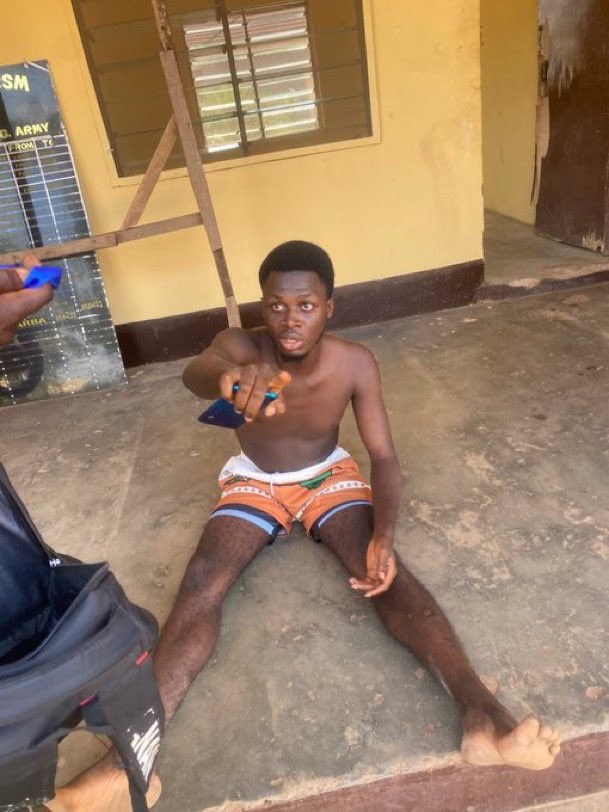The Nigerian Correctional Service (NCoS) has firmly denied reports alleging that Ayomide Adeleye, a 23-year-old suspect charged with kidnapping and murder, is no longer in custody. According to the Service, Adeleye remains securely detained at the Maximum Security Custodial Centre (MSCC) in Kirikiri, Lagos, following a court order.
This clarification was issued on Monday in Abuja by the Deputy Controller of Corrections, Abubakar Umar, on behalf of the NCoS. The statement was a direct response to what the Service described as “mischievous and misleading” allegations.
Reports circulated claiming that Adeleye had either escaped or was no longer in custody, sparking public concern and criticism of the NCoS. Adeleye, who was remanded on September 26, 2024, by the Ogba Magistrates’ Court, is accused of serious crimes, including kidnapping and murder. The same court ordered his continued remand on December 16, 2024, pending legal advice from the Department of Public Prosecution (DPP).
“To set the records straight, the said inmate, aged 23 years with Custody Number S-1995/24, was remanded at the Maximum Security Custodial Centre (MSCC), Kirikiri, Lagos,” Umar stated. He added that Adeleye remains under strict custody as per the court’s directive.
The NCoS also revealed that a case of mistaken identity may have contributed to the confusion. Umar clarified that there had been another inmate with a similar name, also identified as Ayomide Adeleye, who was detained at the Medium Security Custodial Centre in Kirikiri earlier in the year. This individual was remanded on charges of theft in March 2024 but was released on April 14, following a court order.
“Media reports appear to have conflated these two individuals, leading to unfounded allegations aimed at tarnishing the reputation of the Service,” Umar said.
In an effort to reassure the public, the Acting Comptroller General of the NCoS, Sylvester Nwakuche, reaffirmed the institution’s commitment to maintaining safe and humane custody for all inmates.
“The Nigerian Correctional Service works tirelessly to ensure that all legally detained individuals are securely held, reformed, rehabilitated, and prepared for reintegration into society,” Nwakuche was quoted as saying.
He called on members of the public to disregard the false reports and trust the Service to uphold its mandate. “We urge citizens to verify information through official channels rather than rely on unverified media reports,” he added.
The NCoS also criticized the media for not fact-checking its reports, pointing to a pattern of sensationalism that undermines public trust. Umar warned journalists to verify their information with appropriate authorities before publication.
“Media reporters are advised to confirm their information from appropriate quarters before going to press, to avoid dishing out falsehood to the public,” he said.
The Service expressed concerns that such false narratives could erode public confidence in the correctional system, which is already grappling with challenges such as overcrowding and underfunding.
Adeleye’s case is one of many high-profile criminal cases currently under judicial review in Nigeria. With rising crime rates, including kidnappings and violent crimes, public scrutiny of the justice system and its institutions has intensified. The Correctional Service, which plays a critical role in ensuring lawful detention, has faced criticism in the past for incidents such as jailbreaks and allegations of human rights abuses.
The NCoS, however, has taken steps to address these concerns, including reforms aimed at improving inmate welfare and security. Nwakuche reiterated these efforts, emphasising the Service’s commitment to transparency and accountability.
Public reactions to the allegations and subsequent clarification have been mixed. While some citizens expressed relief that Adeleye remains in custody, others questioned the ease with which misinformation about the case spread.
A legal expert, Dr. Ifeanyi Okeke, criticized the media for sensationalizing criminal cases. “In a country like Nigeria, where justice institutions are under immense pressure, irresponsible reporting can have severe consequences. It can lead to unnecessary public panic and tarnish the reputation of critical institutions,” Okeke said.
Meanwhile, human rights advocates have called for a more robust communication strategy from the NCoS to prevent similar incidents in the future. “Transparency is key. The Correctional Service must be proactive in updating the public about high-profile cases,” said Aisha Lawal, a Lagos-based activist.
The NCoS has pledged to investigate the source of the false reports and take steps to prevent such incidents from recurring. The Service also assured Nigerians that all necessary measures are in place to ensure the secure detention of inmates like Adeleye.
With the spotlight now on the Correctional Service, questions linger about how effectively the institution can navigate public scrutiny while maintaining its operational integrity. For Adeleye, the focus remains on the pending advice from the DPP, which will determine the next steps in his legal journey.

